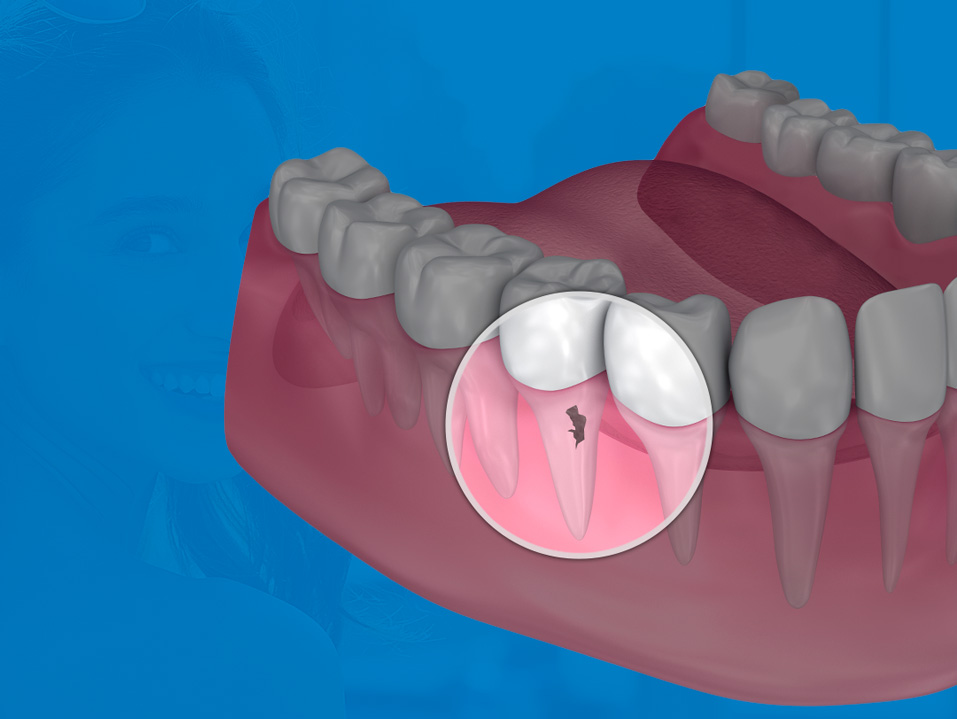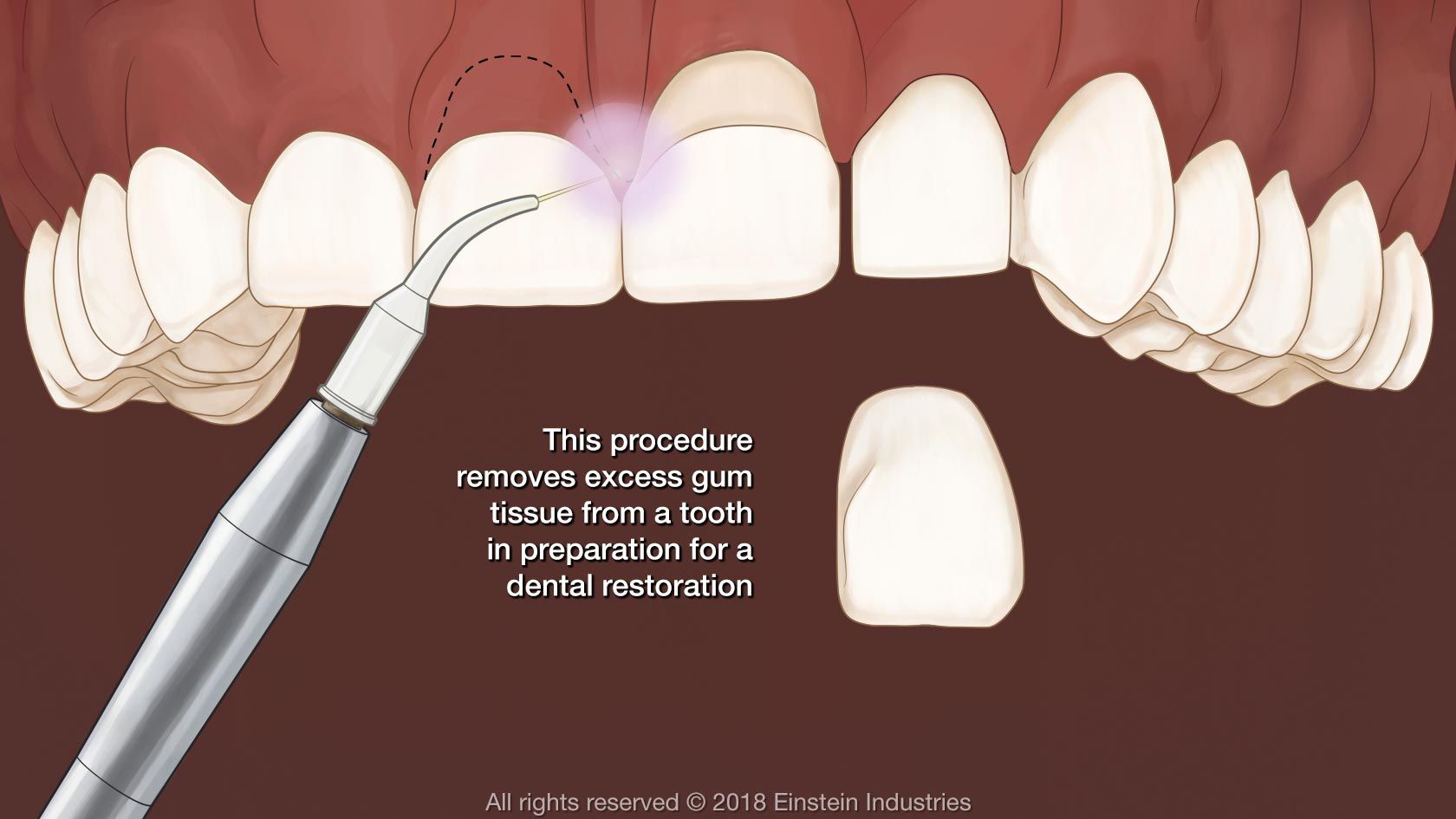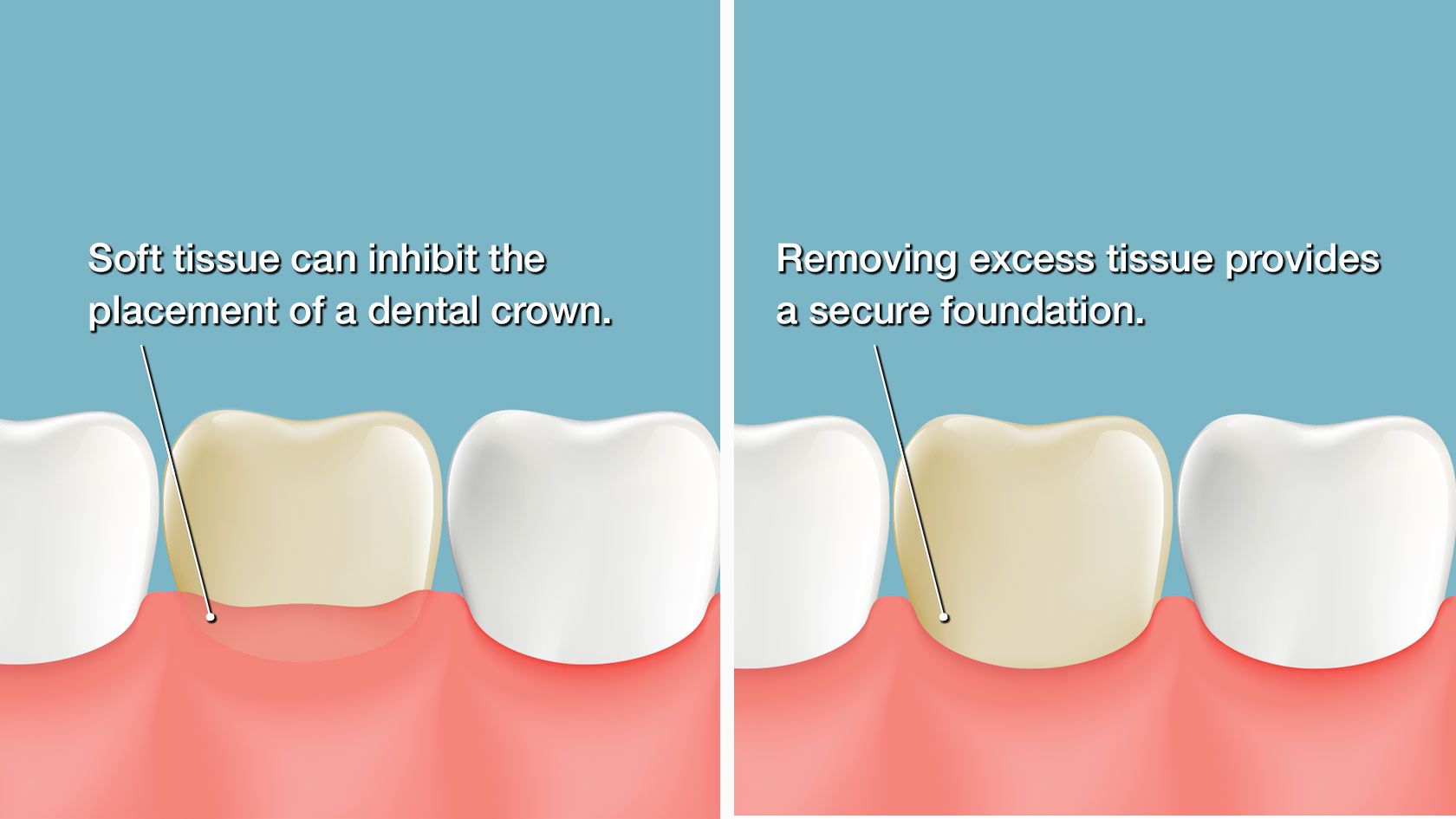Crown Lengthening
If you have been told you need a filling or dental crown, you might first require a preparatory procedure called crown lengthening. It allows your dentist to access decay or create a better foundation for your crown. It may also be recommended before receiving a veneer.

Conservative Treatment
Your dentist will work carefully to preserve as much healthy tissue as possible. Some offices have dental lasers that allow for highly precise contouring.
Minimal Discomfort
Local anesthesia will be used to completely numb the treatment area, and many dentists also offer sedation options.
Better Results
If a crown does not contact enough dental tissue, it can fail. A poor fit can also result in decay developing under the restoration.
Want to see how the procedure works?

Still not convinced crown lengthening can make a difference?

Before Your Procedure
The doctor will explain exactly what to expect and provide detailed pre- and post-operative instructions.
The tooth and surrounding area will be numbed with local anesthesia. If you wear a temporary crown, your dentist will remove it.
Small amounts of soft tissue (and bone tissue, in some cases) will be removed.
Sutures may be applied to close any incisions. Lasers usually eliminate the need for sutures.
If you wear a temporary crown, it will be placed back onto the tooth.
The gums must heal for about three months.
Once you have fully healed, your filling, permanent crown, or veneer can be placed.
I think I might need a crown or filling...
Is Crown Lengthening Expensive?
Crown lengthening in preparation for a crown or filling is considered restorative, so at least a portion of the cost is probably covered by your insurance policy. This treatment can also minimize your risk of requiring more costly treatment in the future. However, if crown lengthening is performed in preparation for a porcelain veneer, it is considered cosmetic, and will not qualify for coverage.
Let’s take a closer look …
Put Your Health First
Dentists only recommend this treatment if it is absolutely necessary. Failure to create a proper foundation for a restoration is risky and could result in the need for tooth extraction in the future.
A strong, healthy smile can benefit your confidence and overall health. If you are experiencing any symptoms of tooth decay or other oral health issues, speak to your dentist today.
